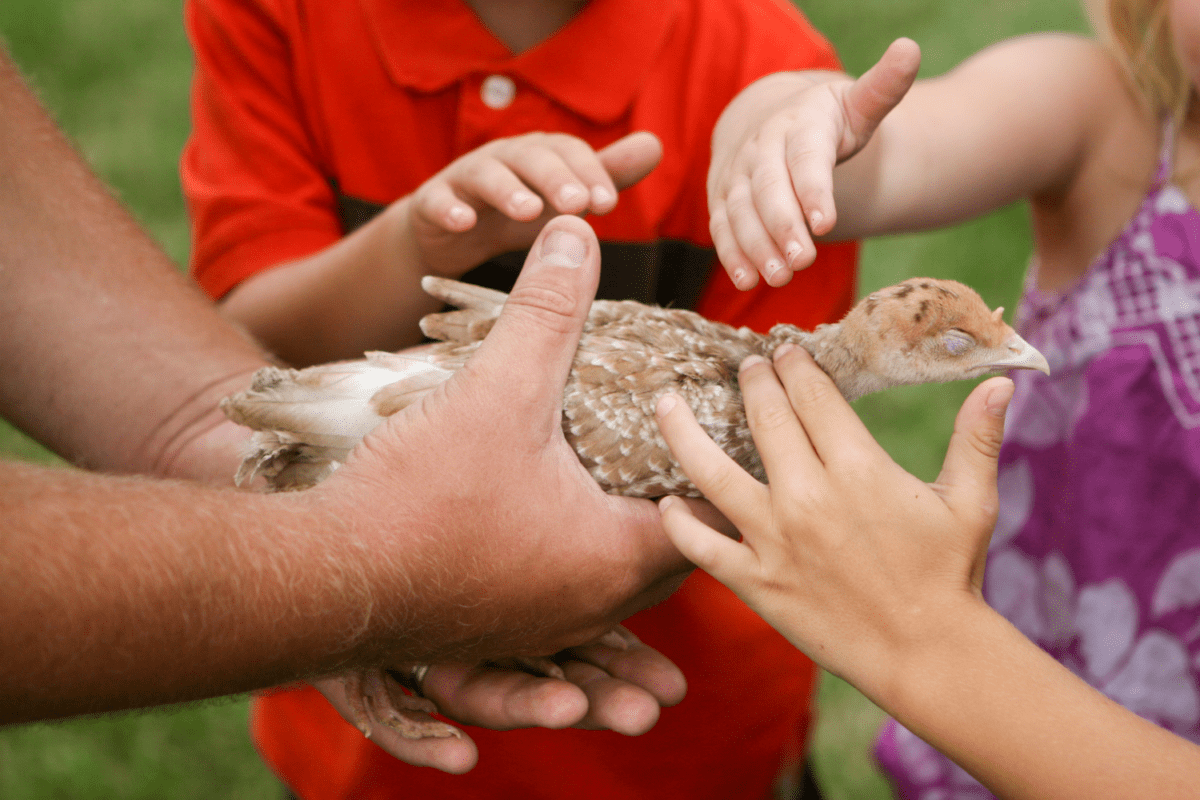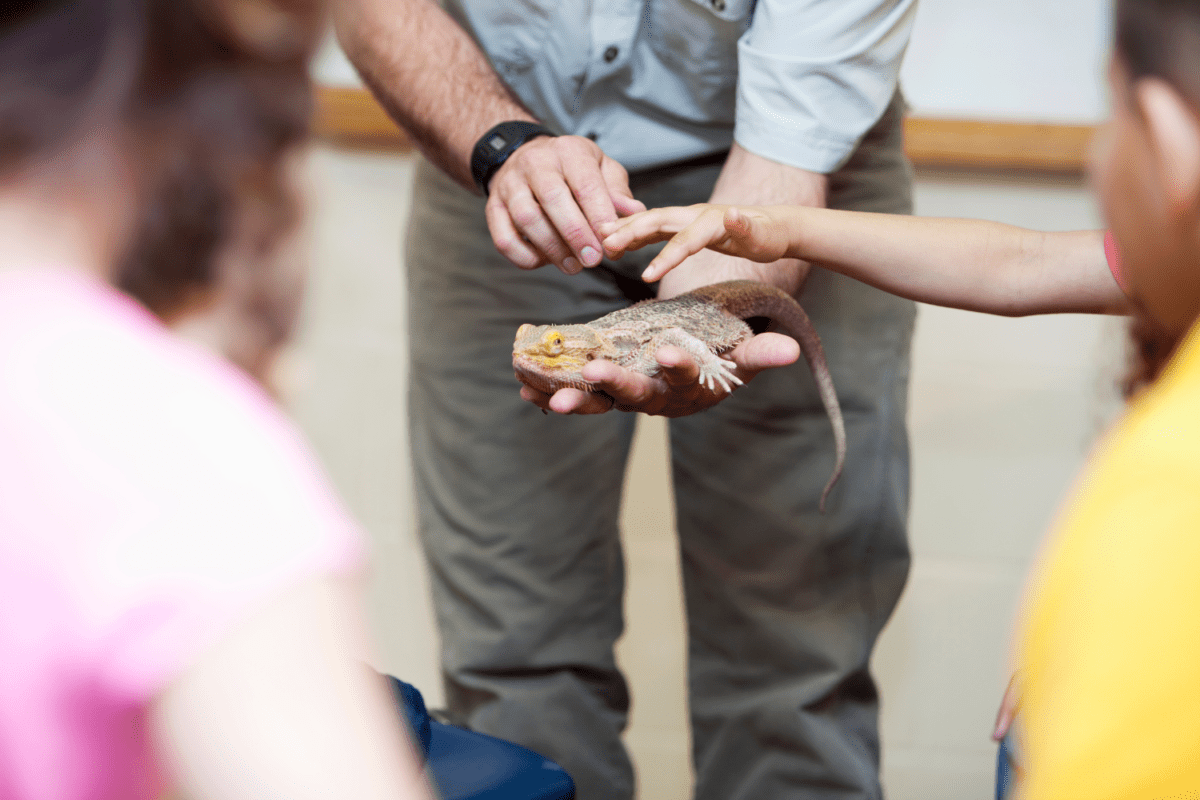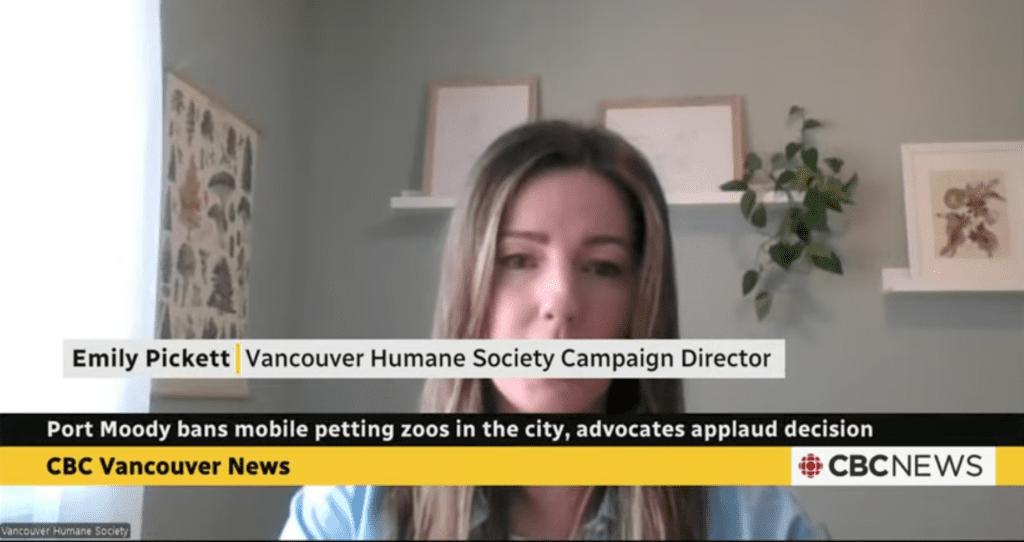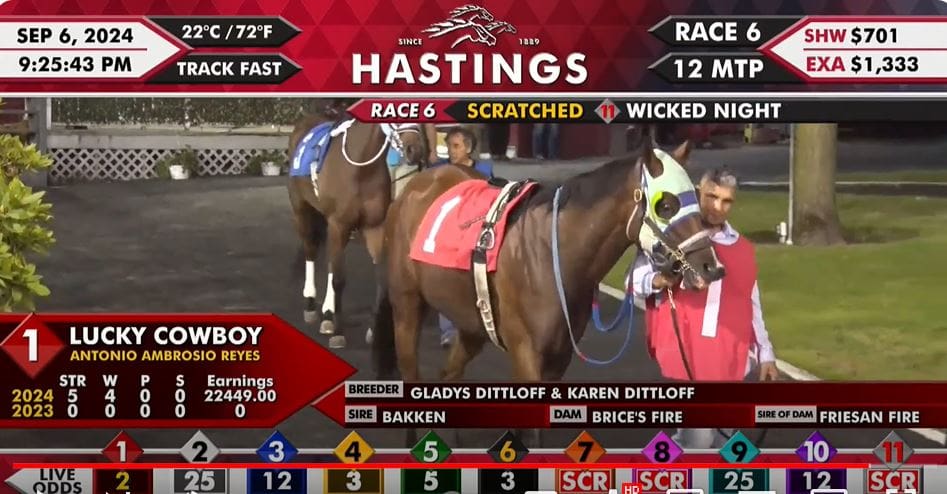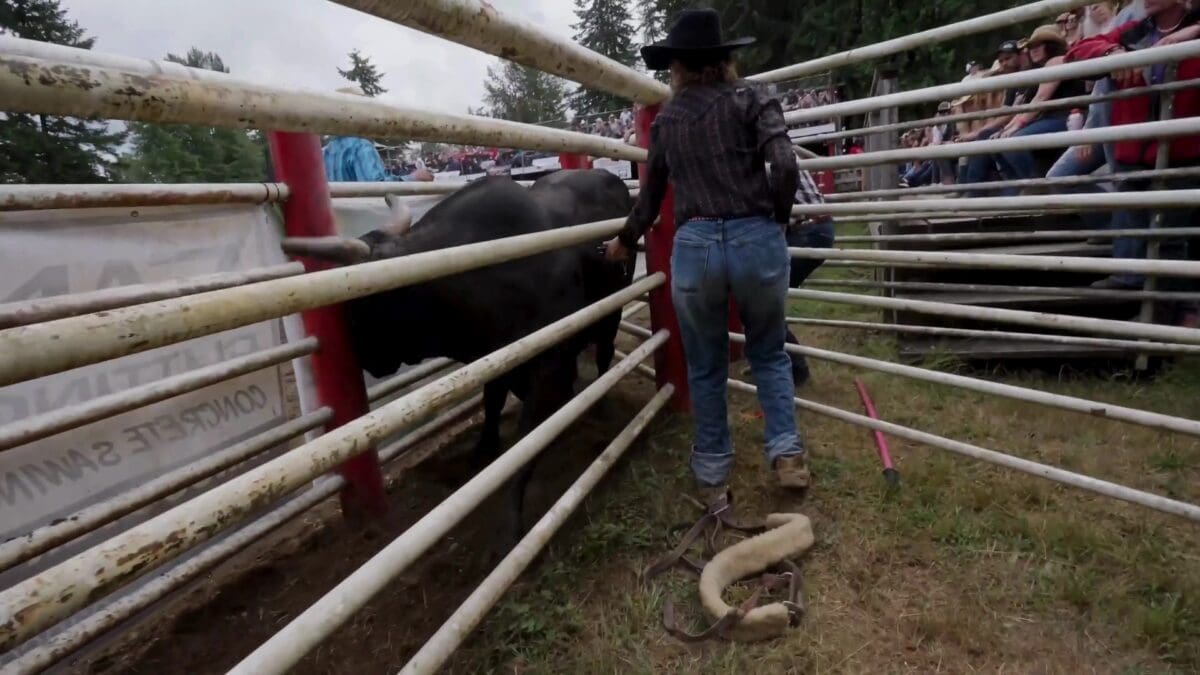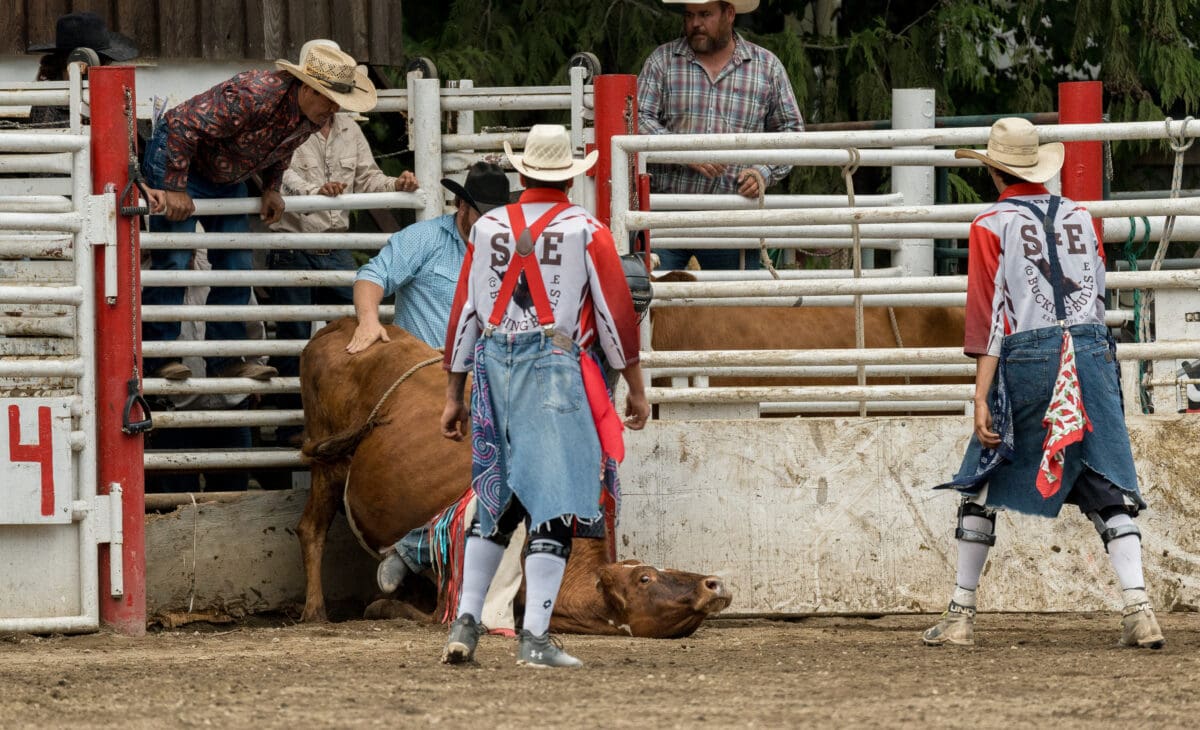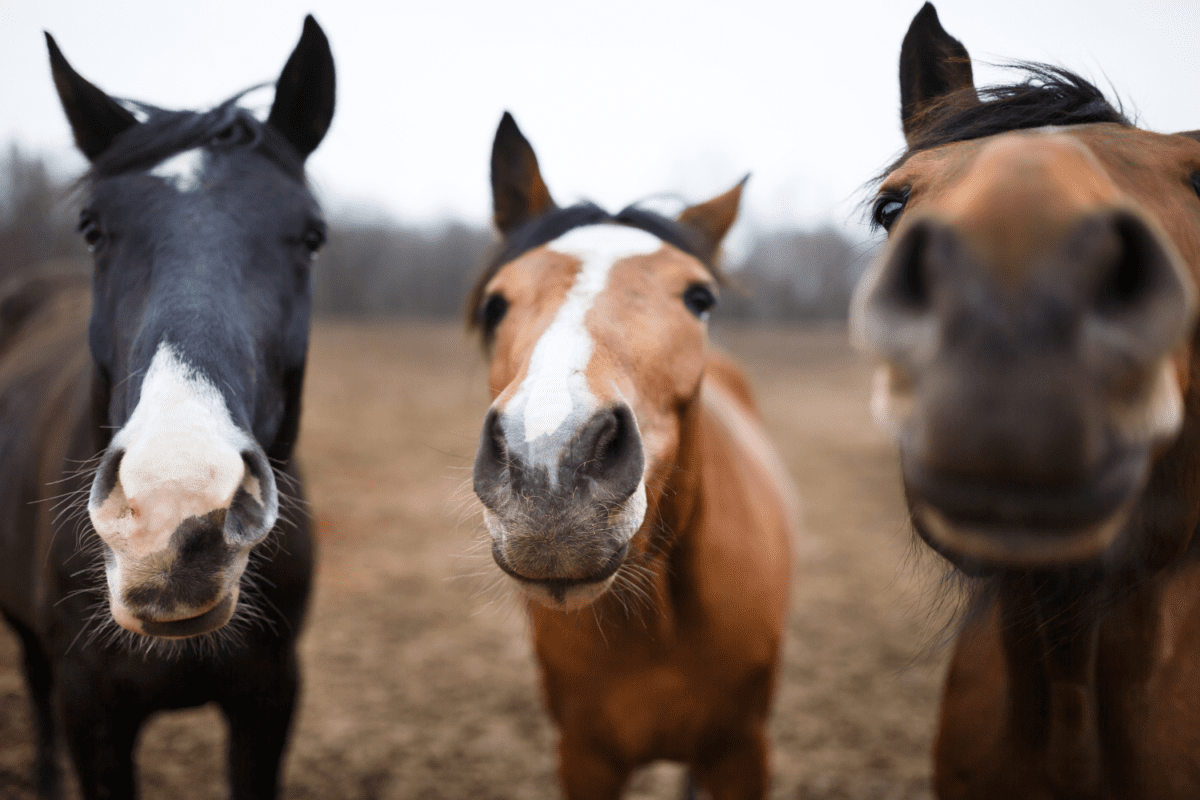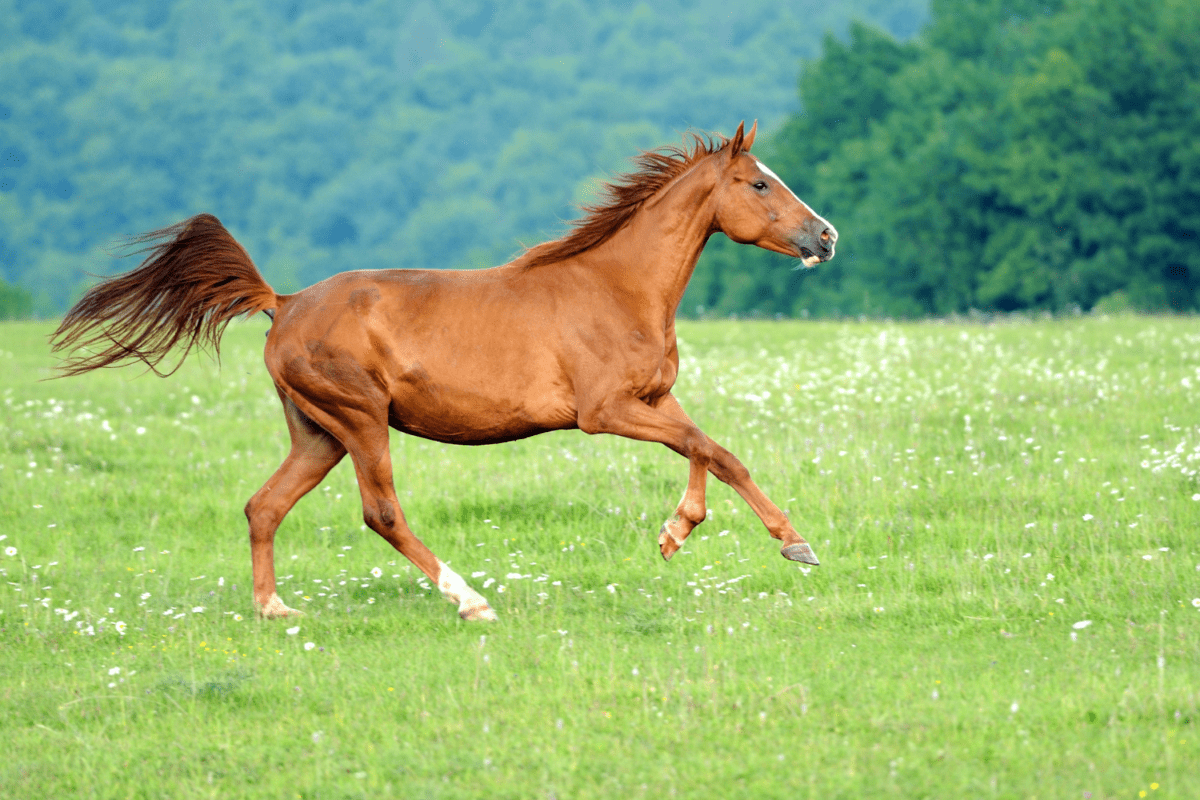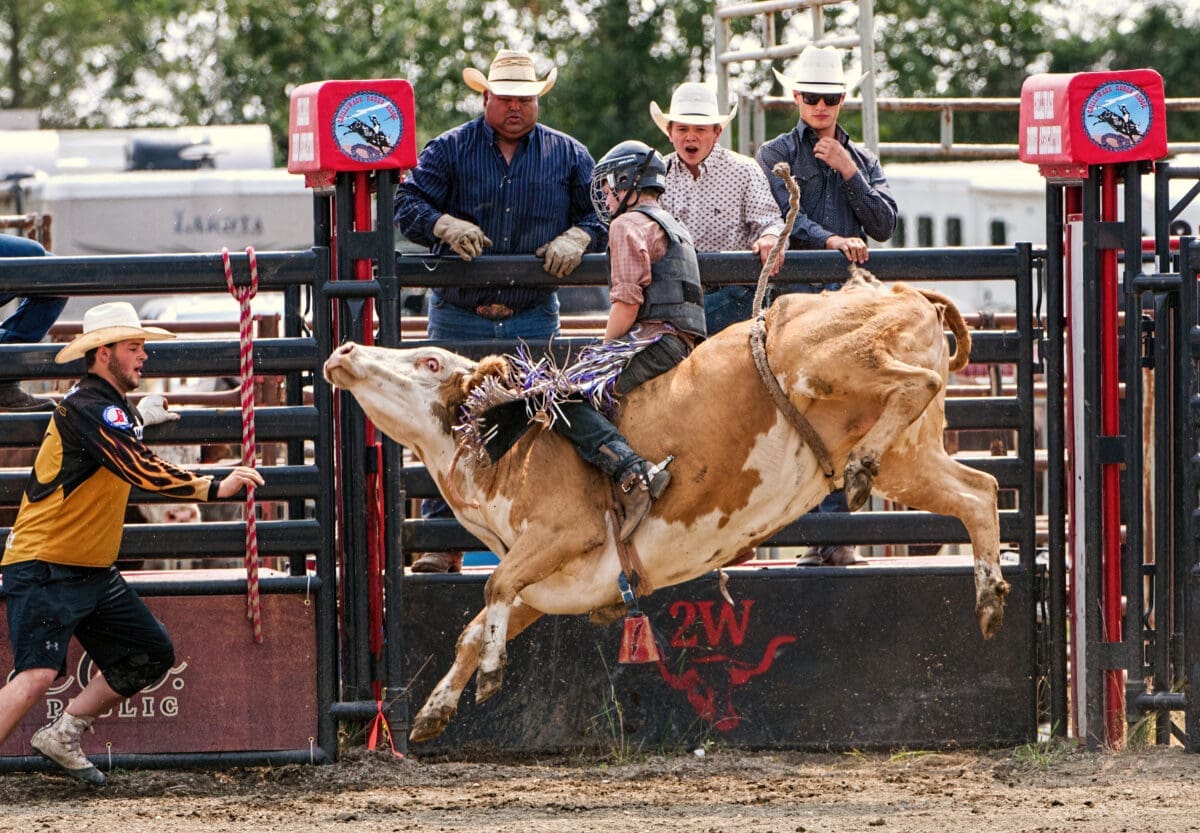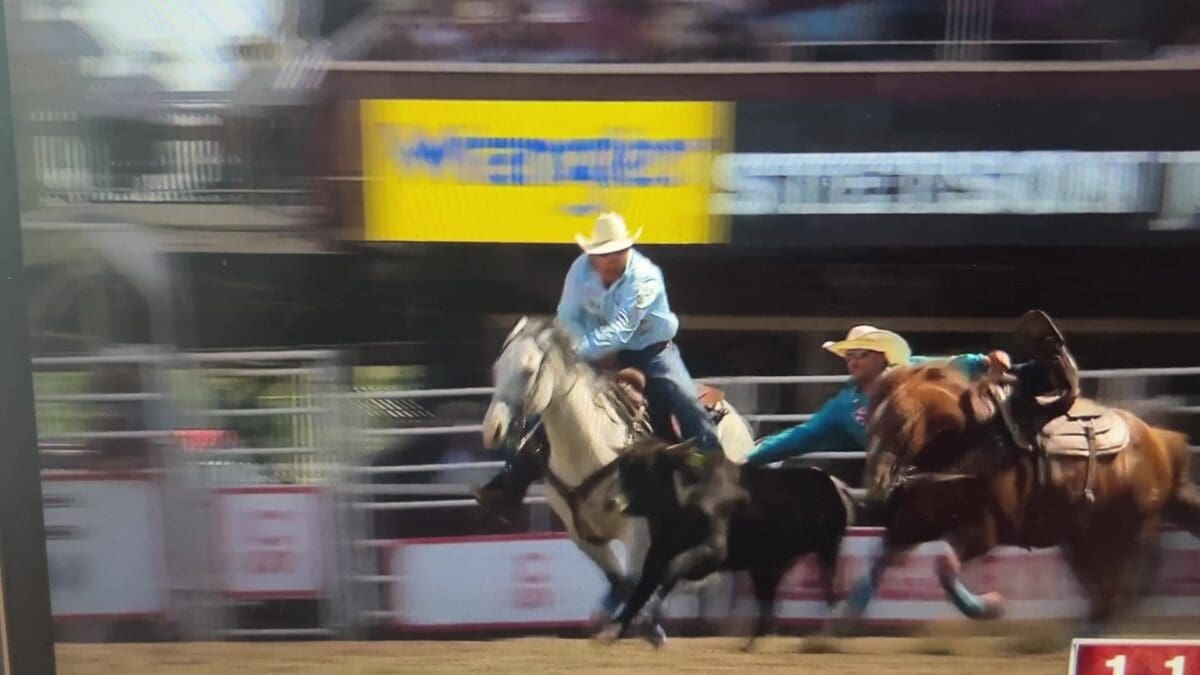Following Port Moody City Council’s vote to ban mobile live animal programs last month, Councillor Kyla Knowles is asking for the province to introduce stronger regulations to protect animals.
Why ban mobile petting zoos?
Mobile petting zoos pose many animal welfare concerns:
- Transportation to different locations can be an inherently stressful process for many species.
- The animals used in these zoos are typically transported and kept in undersized cages or units that may also lack other elements they need to engage in important natural behaviours, like appropriate substrate and enrichment items.
- Animals can develop chronic stress and health issues as a result of disrupted eating, sleeping, and drinking patterns, and from being exposed to unfamiliar sights, sounds, smells and human handling and interactions.
Port Moody City Council voted to ban mobile live animal programs, such as mobile petting zoos, on January 21st following a presentation by the BC SPCA and statements from the Vancouver Humane Society and several Port Moody residents.
Council Kyla Knowles, who championed last month’s motion, has introduced a new motion to ask for stronger protections across the province.
Tri-Cities Dispatch
“On Feb. 25, Coun. Kyla Knowles, who spearheaded the city’s move towards banning mobile petting zoos, introduced an advocacy motion to the Union of BC Municipalities (UBCM) calling on the province to strengthen the rules around mobile live-animal programs. “
“‘Whenever animals are on display or made to perform for recreation, sport or entertainment, they face risks to their physical and psychological well-being,’ Knowles’ motion stated. ‘Meeting an animal’s welfare needs during (the programs) is very difficult, if not impossible, particularly if operators are not trained to recognize and alleviate animal distress or suffering.'”
Tri-City News
“Coun. Kyla Knowles said animals on display or made to perform face risks to their physical and psychological well-being.”
“She’s calling upon her fellow councillors to support a resolution to the Union of BC Municipalities calling for provincial regulations as well as updates to current regulations that will give animal welfare equal priority to public safety, along with a prohibition on the import, keeping, breeding and transport of exotic species.”

